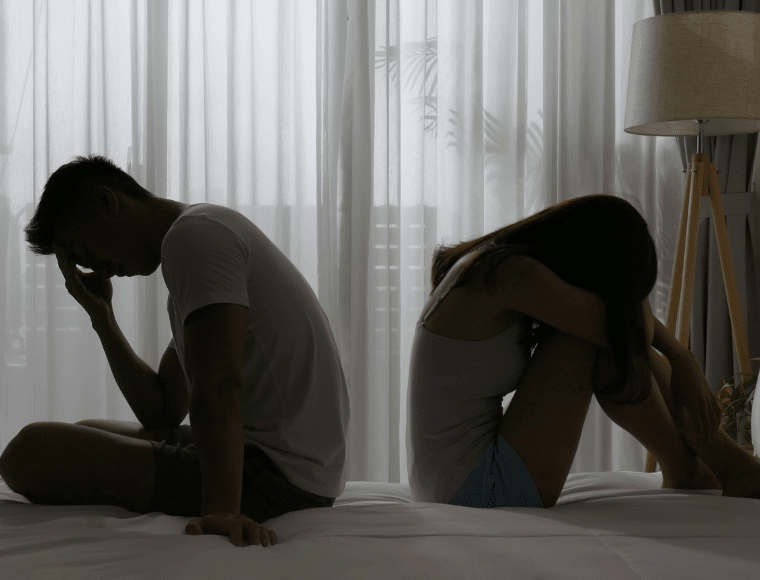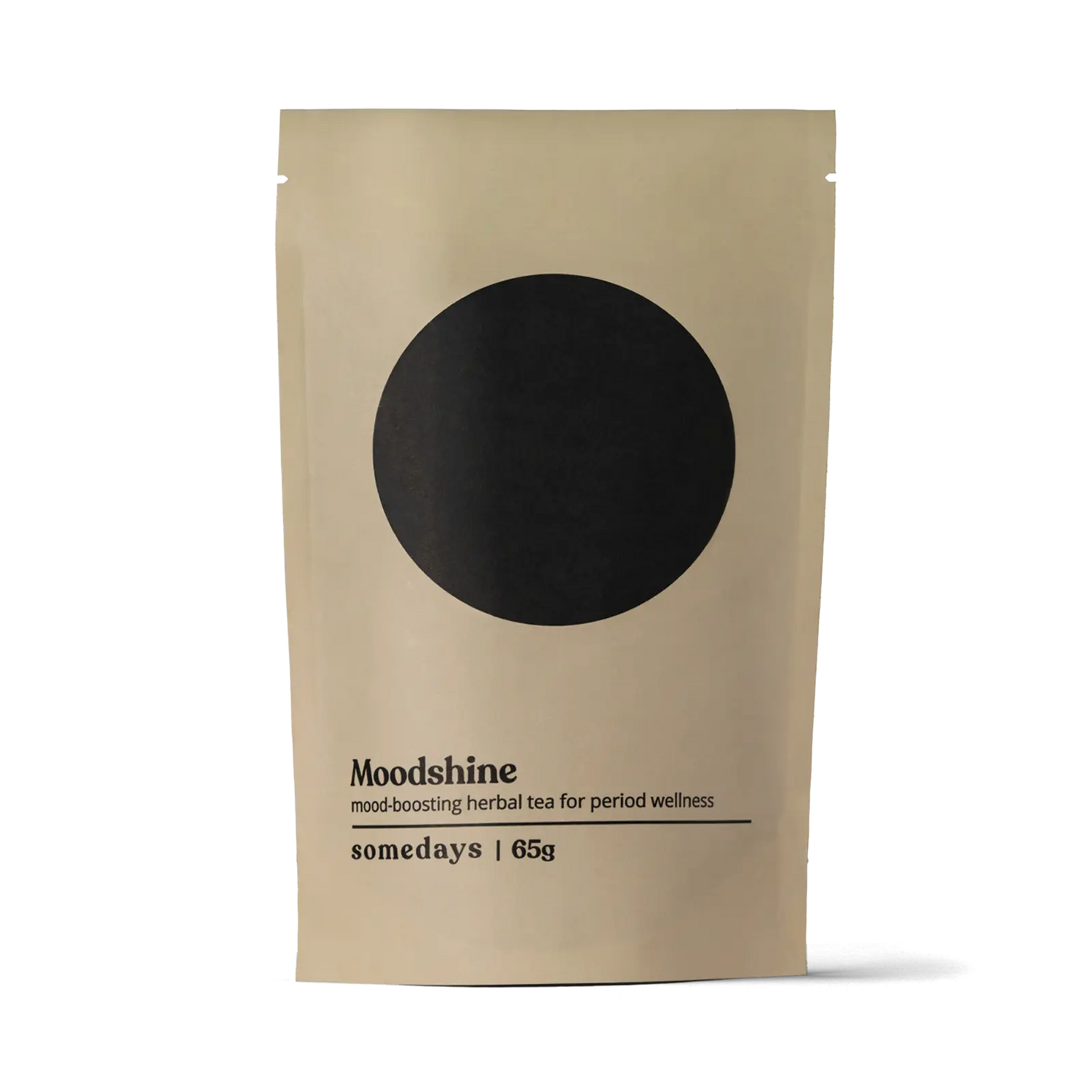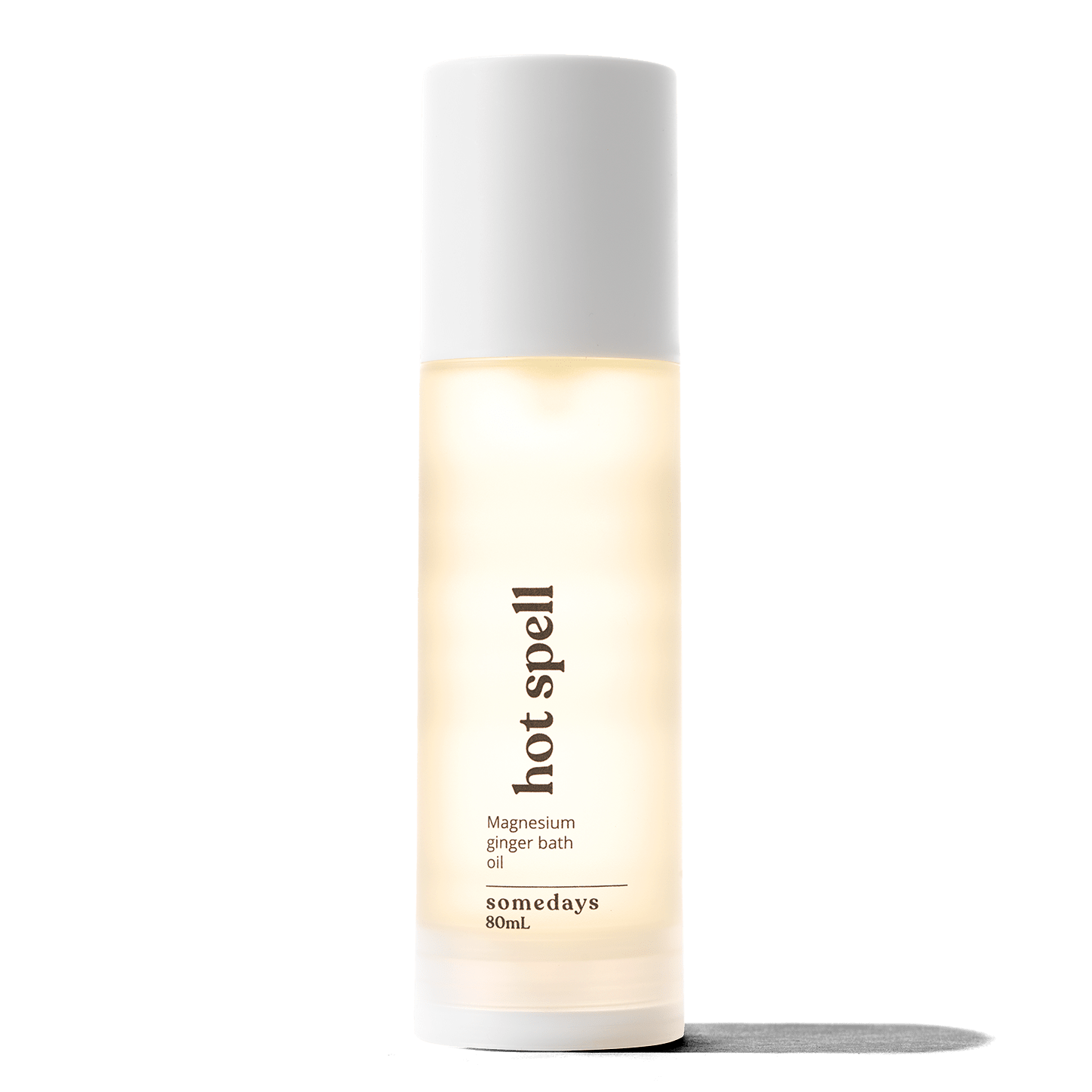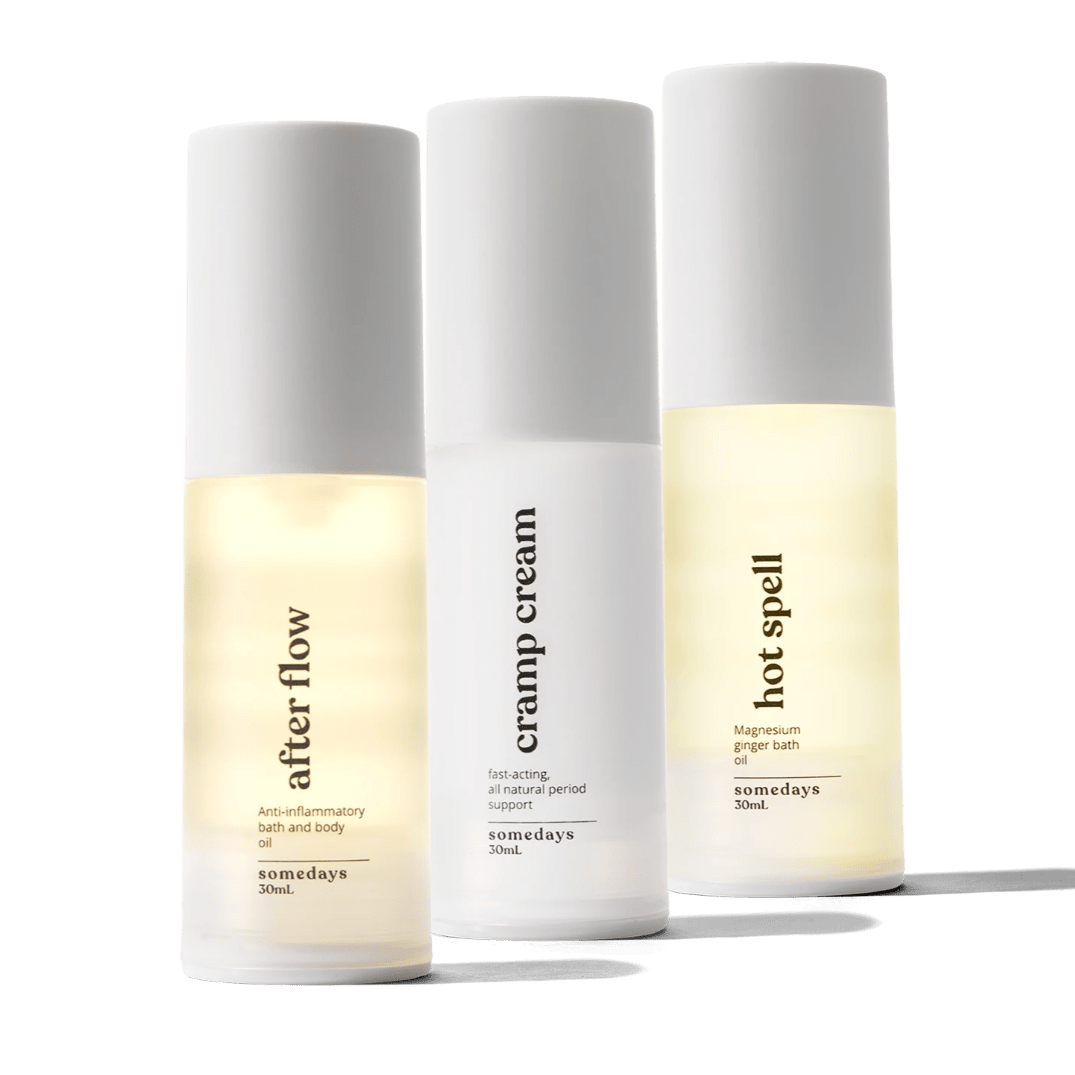Low Libido and PCOS: My Journey Toward Healing and Understanding

Hi, I’m Shalize.
At 19, I sat in a Gynecologist's office and heard the words that would change my life: “You have PCOS.” At that moment, I had no idea what it meant, or how deeply it would affect my life. The doctor’s advice seemed simple enough — take birth control to fix my irregular periods and acne, lose some weight to ease symptoms, and not worry about having kids until later, but I might need help when the time comes.
What wasn’t said? None of these so-called solutions would actually solve anything, and for the next 10 years, I’d be left feeling confused, in pain, and worst of all—struggling with bouts of low libido that made me feel like I didn’t even recognize myself or my body as a woman.
What is low libido, exactly?
Low libido is when your desire for intimacy fades, leaving you with little to no interest in sex or closeness.
What causes low libido and why are women with PCOS more likely to experience it?
Low libido can be caused by a mix of physical, emotional, and lifestyle factors. For women with PCOS, hormonal imbalances like low estrogen, high testosterone, and insulin resistance can all lower sexual desire. Chronic stress, fatigue, anxiety, and relationship issues can also play a role. Poor body image and depression are common factors too, along with certain medications like antidepressants or birth control.
The stress and anxiety that come with managing conditions like PCOS or infertility can also add emotional barriers, making it harder to feel connected or desire intimacy. All these factors together create a tough environment for maintaining a healthy libido.
What does low libido feel like?
The emotional toll of low libido can feel overwhelming and extremely confusing. If you’re like me, it might make you feel disconnected from your body, wondering why it’s not responding the way it "should." Low Libidogoes beyond a lack of interest in intimacy, you might feel numb, or even emotionless—it makes you question your identity.
My Journey with PCOS and Low Libido
When I married my husband in 2017 (I was 25), I felt like I was living a dream. He’s everything I could’ve hoped for—kind, incredibly patient, and a great listener. We share the same morals and values, and he’s undeniably attractive. To say I love him feels like an understatement. We’ve always had a strong connection, and for a while, intimacy was never an issue for us.
Then age 27, I started to feel different, and I didn’t see it coming. I noticed subtle shifts in my body that I couldn’t explain. I just didn’t feel like myself at certain times of the month. I’d go from feeling completely connected to my husband to having moments where I didn’t even recognize myself or my attraction towards him. It was confusing and unsettling, and wasn’t a feeling that would last just a few days—It would last weeks.
For a while, I didn’t have the words to describe it. I wanted to explain how I was feeling to my husband, but I didn’t know how. I wasn’t sure if this was something physical, emotional, or both.
At the time, we were only at the very beginning of our journey trying to conceive with 2-factor infertility — my husband has OAT (Oligoasthenoteratozoospermia), a male fertility condition with three sperm issues: low count, poor motility, and abnormal shape. I thought to myself “Is this happening because I haven’t been able to get pregnant?” After all, it would make sense if not being able to conceive was causing me to feel this way, but I was never really sure where it was coming from.
I felt both distant from my husband and myself in a way I had never experienced. I’d spend days feeling embarrassed, confused, and wishing I could just curl up and hide until I “felt normal" again.
On good days, a simple touch, hug, or kiss from my husband felt like magic, on low libido days, it all felt foreign and distant. I felt numb, the opposite of womanly, and it was as if I had become a stranger in my own body, disconnected from my sense of self and my husband.
Opening Up to My Husband
Eventually, I got sick of hiding what was happening inside me and decided I was going to be honest with my husband. With a shaky voice, I told him, "I’m so sorry I’ve been acting weird. I just don’t feel like myself. I don’t feel like us, and I hate it." I tried not to, but as I spoke, I broke down in tears.
His response was everything I needed—a tight hug that made me feel safe. Our conversation opened the door to deeper discussions about what I was going through, and it made me want to look further into why this very unfair thing was happening to me.
That’s when I discovered the connection between PCOS, hormonal imbalances, and how they affect libido and intimacy. I was shocked. All I could think was — why didn’t the doctor who diagnosed me tell me any of this?
This realization became an important step in my journey, helping me understand that I wasn’t alone in what I was feeling and going through and that healing is possible.
Steps I’ve been taking to manage low libido naturally:
While I wish I could share exciting tips for how I resolved my low libido, the reality is that I’m still still figuring things out. After years of consulting various doctors without much progress, I decided to embrace a holistic approach to healing—and I’m so glad I did. Over the past two years, I’ve gained more clarity and made more progress than ever before.
Here are a few steps I've taken to better understand and heal my body, hormones, and low libido:
Tracking my hormones
I started monitoring my hormones to spot patterns in my cycle. This insight helps me prepare for days when there are changes in my hormones and my libido dips, reminding me these feelings are temporary while also empowering me to find effective holistic solutions to make improvements.
Eating an Organic Whole Food Diet
I switched to a diet rich in organic, whole foods while cutting out processed foods and gluten. I focus on eating fresh fruits, vegetables, pasture-raised or grass-fed animal products, and healthy fats to nourish my body and help reduce inflammation (this is crucial for healing PCOS symptoms!).
Functional Lab Testing
I pursued functional testing to better understand my hormone levels. This deeper insight has allowed me to address specific hormonal imbalances and make targeted lifestyle changes. The tests I’ve tried so far are a DUTCH test (for both me and my husband) and an OAT test (Organic Acids Test).
Cycle Syncing for Eating
To regulate my irregular cycle, I’ve been adjusting my diet according to its phases, like eating iron-rich foods during menstruation and healthy fats during ovulation, and also eating seeds like pumpkin, sunflower, flax and sesame during specific phases of my cycle to support hormone production and balance (this is called seed cycling).
By making these adjustments, I’ve recently started to notice positive changes in my libido, premenstrual symptoms and cycle regularity.
Cycle Syncing for Workouts
I’ve experimented with cycle syncing for my workouts as well, doing high-intensity exercise during the follicular phase and lower-intensity activities like yoga and walking during other phases. It’s crazy how much workouts can affect our hormones! I love the feeling of not pressuring myself to struggle through a high-intensity workout when it's actually not the best time for it based on where I’m at in my cycle.
Slowing Down & Spending Time in Nature
I’ve embraced slowing down by incorporating meditation, journaling, and regular breaks from social media to reflect and recharge. Meditation brings me peace, while journaling helps me track my emotions, symptoms, and cycle changes. Taking a step back from social media has given me the space to focus on learning about my condition without comparison or overstimulation. Spending more time offline and less connected to others has been so healing, although staying connected with loved ones in person has also been really important. Once I realized how much the nervous system affects PCOS, I also made a point to spend more time outside, whether by the river or in the forest. Being in nature has really helped me lower my stress levels and find a sense of balance and calm I didn’t even know I needed.
While I’m still navigating PCOS and bouts of low libido, every step I’ve taken to manage it naturally has been invaluable in helping me understand my body and move toward healing.
I’m feeling healthier and more at peace each day, and my understanding of low libido like when it happens and why is becoming clearer. Plus, my periods are even starting to become more regular—-this is huge for me!
I truly believe in the power of natural healing through food and lifestyle changes, and I encourage you to embrace this approach as well.
How I navigate low libido through open communication in my marriage
Managing low libido in a marriage or relationship can be challenging, but for me, open communication with my husband has been essential. I prioritize honest conversations about my feelings, which helps him understand what I'm going through and reduces the pressure on both of us. We also explore different forms of intimacy, focusing on emotional connections through long walks, meaningful talks, or simply relaxing together, reminding us that intimacy goes beyond the physical. These shared experiences strengthen our relationship and keep it filled with love.
Equally important is my husband’s commitment to sharing his own feelings and emotions openly. We have regular check-ins, which create a safe space of mutual understanding for both of us. Additionally, his attentiveness in helping me connect with my body—especially on days when I struggle—also makes me feel so supported.
If you’re feeling like you need this kind of support from your partner, don’t hesitate to ask for it. I encourage you to!
What’s next for me?
I'm still focused on regulating my cycle, reversing PCOS, and those bouts of low libido, while my husband is working on improving his overall health and OAT (Oligoasthenozoospermia). Together, we’ve been slowly shifting toward a toxin-free lifestyle, making changes like switching to toxin- and fragrance-free deodorants, soaps, and perfumes to avoid products that contain chemicals that can interfere with hormone balance and fertility.
We’re also considering IVF again, and I have high hopes that the diet and lifestyle changes we’ve made since our last failed IVF in 2020 will put us in a better position for a positive outcome.
I wrote this for the women who have felt like me. My hope is that by sharing my story, you feel less alone and encouraged to believe that healing is possible—and you won’t have to feel this way forever.
If my story resonates with you, please don’t hesitate to reach out. I’m here for you, whether you’re looking for a friend, someone to relate to, or just a supportive ear. You can message me on Instagram or send me an email at misstomadameblog@gmail.com.
With love,
Shalize
Follow Shalize on Instagram to stay updated on her journey as she navigates the complexities of infertility and works towards healing from PCOS.
Previous Article All Articles Next Article
All Articles


